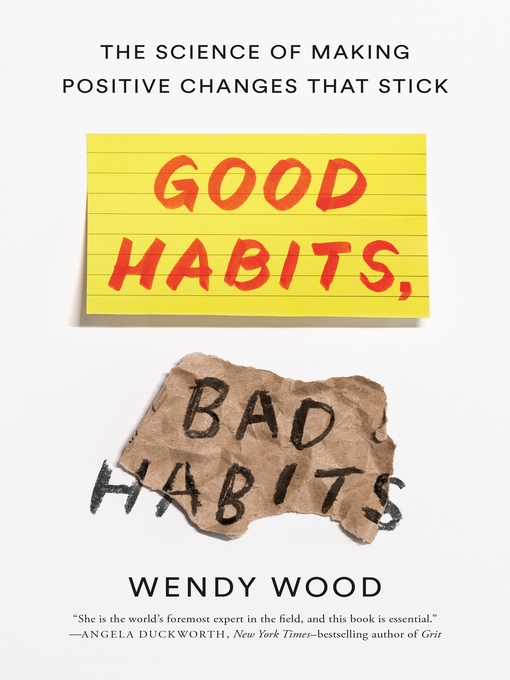A landmark book about how we form habits, and what we can do with this knowledge to make positive change
We spend a shocking 43 percent of our day doing things without thinking about them. That means that almost half of our actions aren't conscious choices but the result of our non-conscious mind nudging our body to act along learned behaviors. How we respond to the people around us; the way we conduct ourselves in a meeting; what we buy; when and how we exercise, eat, and drink—a truly remarkable number of things we do every day, regardless of their complexity, operate outside of our awareness. We do them automatically. We do them by habit. And yet, whenever we want to change something about ourselves, we rely on willpower. We keep turning to our conscious selves, hoping that our determination and intention will be enough to effect positive change. And that is why almost all of us fail. But what if you could harness the extraordinary power of your unconscious mind, which already determines so much of what you do, to truly reach your goals?
Wendy Wood draws on three decades of original research to explain the fascinating science of how we form habits, and offers the key to unlocking our habitual mind in order to make the changes we seek. A potent mix of neuroscience, case studies, and experiments conducted in her lab, Good Habits, Bad Habits is a comprehensive, accessible, and above all deeply practical book that will change the way you think about almost every aspect of your life. By explaining how our brains are wired to respond to rewards, receive cues from our surroundings, and shut down when faced with too much friction, Wood skillfully dissects habit formation, demonstrating how we can take advantage of this knowledge to form better habits. Her clear and incisive work shows why willpower alone is woefully inadequate when we're working toward building the life we truly want, and offers real hope for those who want to make positive change.
- Just Added eBooks
- New York Times Notable Books of 2021
- Rainbow Reads - Fiction
- Rainbow Reads - Nonfiction
- Always Available
- Black Voices
- In the Garden
- Available Now - No Hold List!
- Get Hooked!: Series Starters
- Anti-Racism and Social Justice
- Lifestyles of the Rich and the Famous
- Smart People Read Dummies® Books!
- All Titles
- See all ebooks collections
- No Wait Audiobooks!
- Just Added Audiobooks
- Black Voices
- Get Hooked!: Series Starters
- Now Available From Recorded Books!
- Anti-Racism and Social Justice
- The Outlander Series: Now On Audio!
- Listen to the Stars!
- Available now
- New audiobook additions
- All Titles
- New teen additions
- Most popular
- See all audiobooks collections


